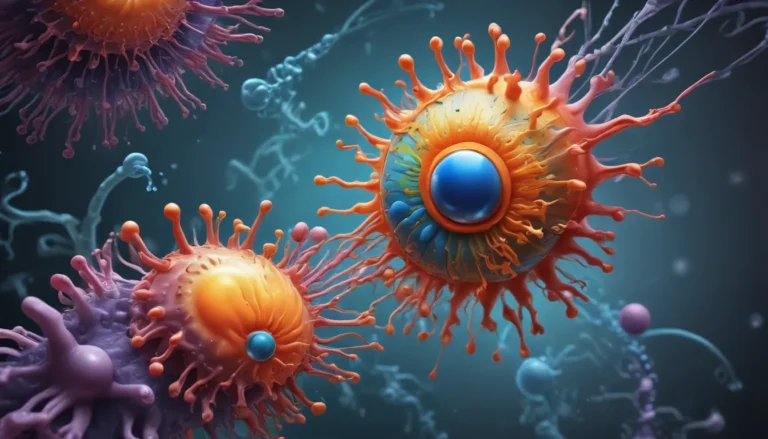A Note About Images: The images used in our articles are for illustration purposes only and may not exactly match the content. They are meant to engage readers, but the text should be relied upon for accurate information.
In the quest for good health, nutrition plays a crucial role. Our bodies require a precise balance of essential nutrients to function optimally, and any deficiency in these nutrients can have a significant impact on our overall well-being. While common deficiencies like iron and Vitamin D are well-known, there are several lesser-known deficiencies that can also have serious implications for our health. In this article, we will delve into nine intriguing facts about nutritional deficiencies, highlighting the importance of a diverse and balanced diet in supporting our health. So let’s explore the fascinating world of nutritional deficiencies together!
Understanding Nutritional Deficiencies
Nutritional deficiencies occur when the body lacks essential vitamins, minerals, or other vital nutrients. These deficiencies can lead to various health issues, ranging from weakened immune systems to impaired cognitive function. It is crucial to recognize the impact of inadequate nutrition on our health and take steps to address any deficiencies promptly.
The Prevalence of Vitamin D Deficiency
Vitamin D deficiency is a widespread issue globally. This essential vitamin is primarily synthesized in the body through sunlight exposure. However, many individuals, particularly those in regions with limited sun exposure, fail to meet their daily intake requirements. It is essential to ensure adequate levels of Vitamin D to maintain overall health.
Iron Deficiency and Anemia
Iron deficiency, also known as anemia, affects a significant portion of the global population. Iron is essential for the production of hemoglobin, which carries oxygen to the body’s cells. Insufficient iron levels can lead to fatigue, weakness, and cognitive impairment. It is important to include iron-rich foods in your diet to prevent this deficiency.
The Impact on Mental Health
Research has established a clear link between nutritional deficiencies and mental health issues. Inadequate intake of nutrients like omega-3 fatty acids and B vitamins has been associated with an increased risk of depression, anxiety, and other mood disorders. Consuming a balanced diet rich in these nutrients is crucial for mental well-being.
Dietary Considerations for Vegetarians and Vegans
Individuals following vegetarian or vegan diets are at a higher risk of nutritional deficiencies due to the absence of certain nutrients primarily found in animal-based foods. Planning meals carefully and incorporating supplements, if necessary, can help prevent deficiencies and support overall health and well-being.
Impact on Child Development
Nutritional deficiencies can have significant implications for children’s growth and development. Inadequate intake of key nutrients like iron, iodine, and vitamin A can hinder physical and cognitive development, leading to stunted growth, learning difficulties, and weakened immune systems. It is crucial to ensure children receive a balanced and nutritious diet for optimal development.
The Role in Chronic Disease Risk
Emerging evidence suggests that nutritional deficiencies may contribute to the development of chronic diseases such as cardiovascular disease, type 2 diabetes, and certain types of cancer. Inadequate intake of antioxidants, fiber, and essential fatty acids can play a role in the progression of these conditions. Maintaining a nutritious diet is essential for reducing the risk of chronic diseases.
Prevention and Treatment Strategies
Many nutritional deficiencies can be prevented or corrected through dietary choices and, if necessary, the use of supplements. Consuming a varied diet rich in nutrients is crucial for maintaining optimal health and preventing deficiencies. Regular monitoring and consultations with healthcare professionals are essential for identifying and addressing any nutritional deficiencies.
Conclusion: Promoting Optimal Health Through Nutrition
Understanding the impact of nutritional deficiencies is key to maintaining optimal health and well-being. From the importance of vitamins and minerals to the consequences of inadequate intake, proper nutrition is fundamental for overall health. By being aware of these facts and maintaining a balanced diet, we can prevent and address nutritional deficiencies, promoting vitality and wellness.
FAQs: Addressing Common Concerns
- What are the symptoms of nutritional deficiencies?
-
Symptoms may include fatigue, weakness, poor concentration, hair loss, brittle nails, frequent infections, and impaired wound healing.
-
Can nutritional deficiencies be reversed?
-
Yes, nutritional deficiencies can generally be reversed by incorporating a nutrient-rich diet and supplements as advised by a healthcare professional.
-
Are nutritional deficiencies common?
-
Yes, nutritional deficiencies are relatively common, especially in populations with limited access to diverse foods or those following restrictive diets.
-
Can nutritional deficiencies affect mental health?
-
Yes, certain nutrient deficiencies have been linked to mental health issues such as depression and anxiety.
-
Is it possible to overdose on vitamins or minerals?
-
While possible, it is rare through dietary intake alone. Consulting with a healthcare professional before taking supplements is essential.
-
How can I prevent nutritional deficiencies?
- Consuming a balanced diet that includes fruits, vegetables, whole grains, lean proteins, and healthy fats can help prevent deficiencies. Regular check-ups with healthcare professionals are also recommended for early detection and intervention.
Nutritional deficiencies can impact health in various ways, highlighting the importance of proper nutrition for overall well-being. By understanding these facts and making informed dietary choices, we can support our health and vitality. Consult with healthcare professionals for personalized guidance and take proactive steps towards a healthier lifestyle.






